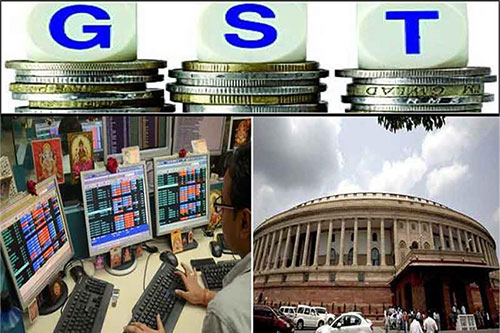How to make ERP systems GST- compliant
Dated 19th December, 2016
 The Enterprise Resource Planning (ERP) space is undergoing a major transformation. New capabilities, integrated analytics and the cloud have changed the very essence of ERP software. The biggest disrupter, of course, is the migration to the cloud. It would not be an exaggeration to say that ERP is facing the biggest upheaval ever since it became popular in the 1990s.
The Enterprise Resource Planning (ERP) space is undergoing a major transformation. New capabilities, integrated analytics and the cloud have changed the very essence of ERP software. The biggest disrupter, of course, is the migration to the cloud. It would not be an exaggeration to say that ERP is facing the biggest upheaval ever since it became popular in the 1990s.
ERP systems are evolving fast, and the market is more dynamic than ever before. There has been a dramatic increase in applications designed to extend ERP functionality in major modules, such as inventory, and financial and customer relationship management. Large monolithic ERP suites are becoming a thing of the past. In fact, we are now in the post-modern ERP era, where businesses are choosing hybrid solutions, and mixing on-premise functionality with cloud solutions.
Impact of GST on ERP systems
In tune with global trends, companies in India are acknowledging the change and adapting to the new normal. But the ERP landscape in India is also being powered by a desi catalyst — the impending rollout of the Goods and Services Tax (GST). Several Indian companies are in the process of upgrading their ERP systems so as to evaluate new tax structures and other cost implications, and accommodate the complexities of calculating the GST, once the new regime comes into force.
The changes in ERP will need to factor various parameters, including procurement, warehousing and impact on vendors and customers, among others. Most enterprises will have to switch to an upgraded system that links entries accurately, as against their present system that records transactions separately. ERP systems are extensively used by goods manufacturers, especially for supply-chain management. Many retailers use ERP systems to check movement of goods from the warehouse to the retailer. For instance, if a product manufactured in one state reaches a mall in another state, the ERP system will record every stage of the movement, including the goods carrier’s passage through check points.
Since GST will mainly have an impact on data management and taxation, among other things, specific organizations will need to look into their present versions of finance solutions and customer-specific developments, and plan accordingly. Presently, the states of the nation are treated as different entities; once GST becomes operational, all of India will be seen as one entity.
Challenges ahead
It is obvious that the GST rollout will be a huge challenge for companies in terms of revamping their ERP systems. Integrating a new taxation system with the existing system will be a tough call. The revamp exercise is not going to be a standard software patch to be applied to the ERP system at one go. Companies will have to be very clear about which modules of their software are going to be affected, and how they will correlate the changes with the GST.
However, it is not something that can be put off. GST is one of the biggest tax reforms of India. Timely preparedness will ensure a smooth transition for the industry. Fortunately, the lack of a political consensus on GST has given companies some extra time to make their ERP systems GST-compliant. They need to make the most of it.





